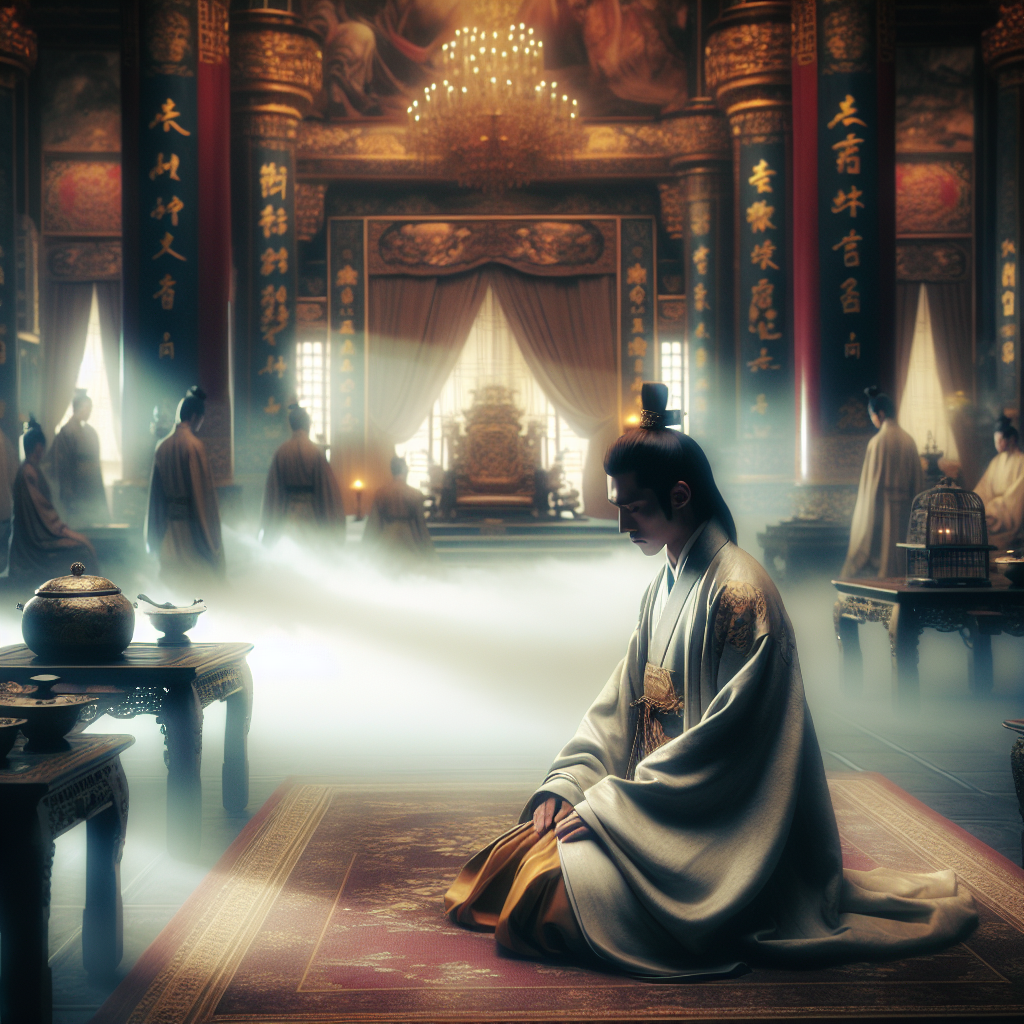Redemption and Renewal: Biblical Lessons from The Last Emperor (1987)
The story of "The Last Emperor" (1987) is a compelling tale of loss, transformation, and redemption that mirrors several profound biblical principles. Through the life of China’s last emperor, Pu Yi, we see echoes of themes that are deeply rooted in Scripture. This devotional aims to explore these themes and how they can enrich our understanding of our own spiritual journeys.
The Rise and Fall: Like King Solomon
As we begin, reflect on the grandeur and downfall of King Solomon (1 Kings 1-11), a biblical figure whose life trajectory shares similarities with that of Pu Yi.
Pu Yi was crowned at the tender age of three and led a life of opulence within the Forbidden City. Yet, his reign was marred by internal struggles and external turbulence, leading to his eventual dethronement and imprisonment. Solomon, too, experienced the heights of splendor and wisdom but fell into ruin due to disobedience and idolatry.
- Ecclesiastes 1:14: "I have seen all the things that are done under the sun; all of them are meaningless, a chasing after the wind."
Solomon’s reflection in Ecclesiastes reveals that earthly glory and material wealth are fleeting. When we place our trust in worldly attainments, we may find our lives empty and unfulfilled, much like Pu Yi in his later years.
Reflection Question: How do you balance seeking success and remaining true to your spiritual values? Reflect on areas where you may be "chasing after the wind."
A Journey of Transformation: Saul’s Conversion
Pu Yi’s transformation during his years of imprisonment and subsequent re-education mirrors the conversion of Saul to Paul in the New Testament (Acts 9:1-19).
Once a figure of immense power and privilege, Pu Yi came face to face with humility and simplicity during his reformation period. Similarly, Saul, who persecuted Christians, was transformed after a divine encounter on the road to Damascus, becoming Paul, a fervent apostle of Christ.
- 2 Corinthians 5:17: "Therefore, if anyone is in Christ, the new creation has come: The old has gone, the new is here!"
God can work profound transformations in our lives, just as He did with Pu Yi and Paul. No matter our past, we are offered a fresh start through Christ’s redemptive power.
Reflection Question: What areas of your life need transformation? How can surrendering these areas to God change your current circumstances?
Role of Redemption: The Prodigal Son
Pu Yi’s redemption parallels the parable of the Prodigal Son (Luke 15:11-32). The Prodigal Son squandered his inheritance but was warmly welcomed back by his father after he repented.
Similarly, after years of disillusionment and captivity, Pu Yi found a new purpose and identity. Despite his past failures, he was able to reconcile with his own sense of self and society.
- Luke 15:24: "For this son of mine was dead and is alive again; he was lost and is found.’ So they began to celebrate."
This parable illustrates God’s boundless grace and readiness to embrace us, no matter how far we’ve strayed. No past mistakes can separate us from His enduring love.
Reflection Question: Are there any past mistakes or failures that you need to bring before God to experience His redemption fully?
Humility and Service: Jesus Washing the Disciples’ Feet
From royalty to gardener, Pu Yi’s life journey reflects an act of humility and service akin to Jesus washing the feet of His disciples (John 13:1-17).
In his later years, Pu Yi worked as a simple gardener, embracing humility and serving others as part of his rehabilitation. This mirrors Jesus’ example of servant leadership, showing that true greatness lies in our willingness to serve others.
- John 13:14-15: "Now that I, your Lord and Teacher, have washed your feet, you also should wash one another’s feet. I have set you an example that you should do as I have done for you."
True leadership and greatness are found in humility and service. Jesus’ actions remind us to lift others up through acts of kindness and service.
Reflection Question: How can you incorporate humility and service into your daily life? Who can you serve today to reflect Christ’s love?
Conclusion: Embracing Our Spiritual Journey
The life of Pu Yi portrayed in "The Last Emperor" is a testament to the power of transformation, redemption, and humility—values deeply embedded within the Bible. By reflecting on these themes, we can gain insights into our own spiritual journeys.
- Romans 12:2: "Do not conform to the pattern of this world, but be transformed by the renewing of your mind. Then you will be able to test and approve what God’s will is—his good, pleasing and perfect will."
As you go about your day, let these reflections guide you. Embrace transformation, seek redemption, practice humility, and renew your mind daily in God’s Word.
Call to Action: Take a moment to share your thoughts or experiences related to this devotional in the comments. How has God transformed your life? What steps are you taking toward humility and service? Let’s inspire and uplift one another with our stories of faith.
If you want to see how ANY movie relates to Biblical principles, please try our Movies and Scripture GPT. Simply key in any movie and let it show you insights you might not have realized otherwise!


